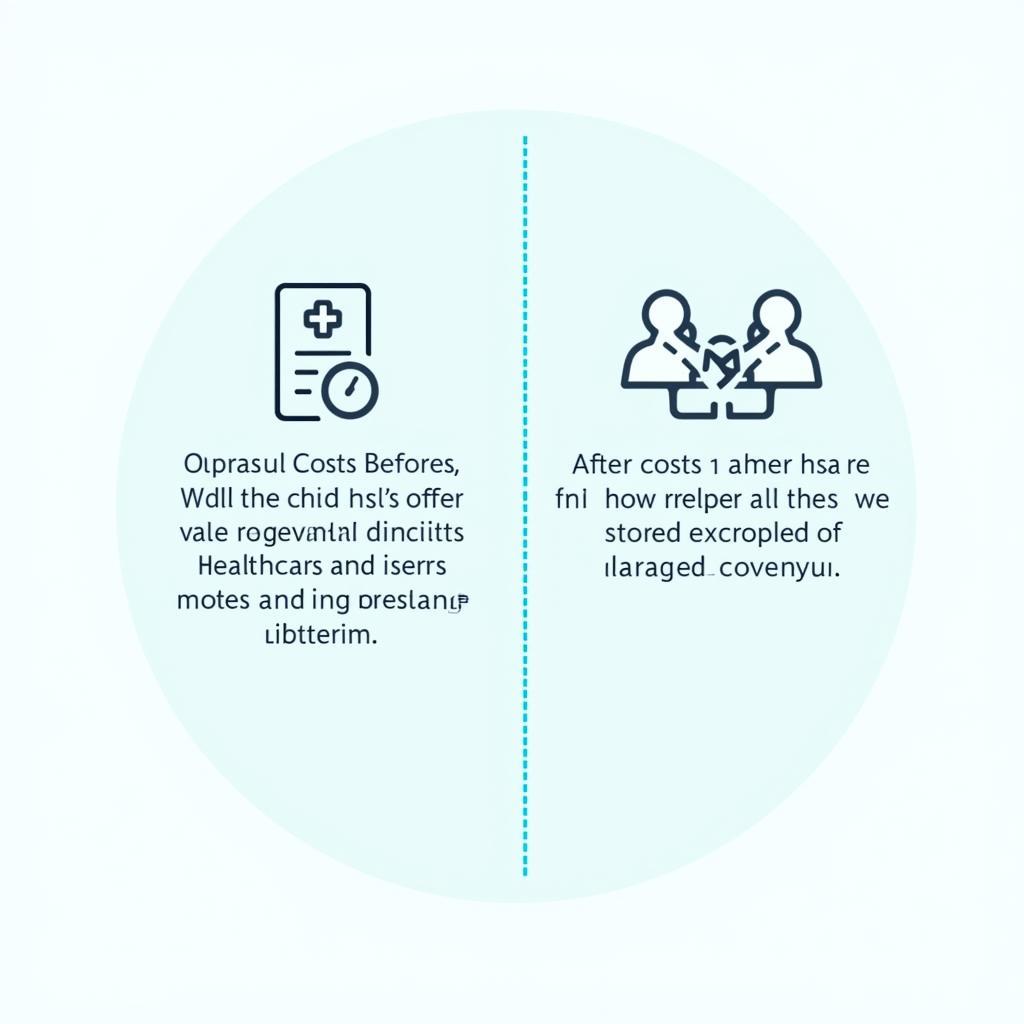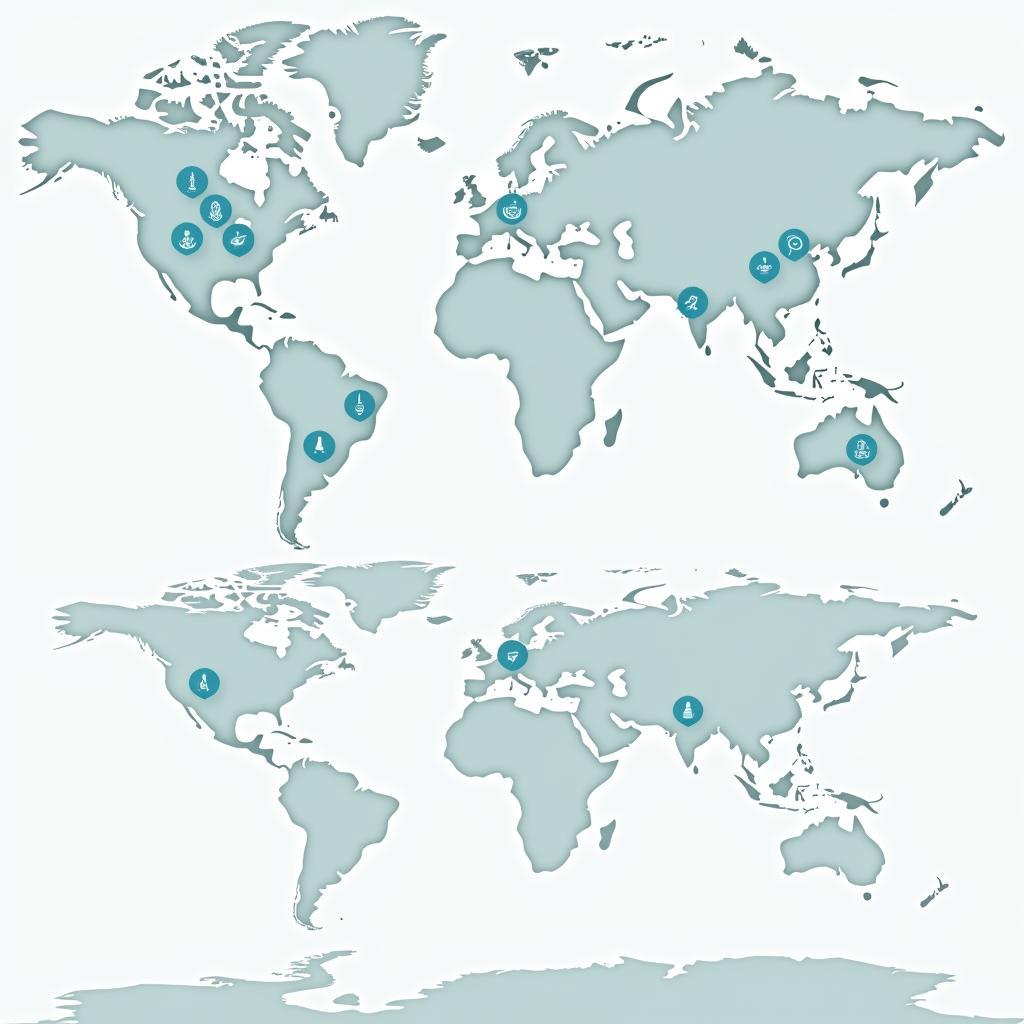What is the Impact of Managed Care on Health Services?
Managed care has significantly reshaped the landscape of health services, aiming to deliver cost-effective healthcare while ensuring quality and accessibility. This approach to healthcare delivery coordinates costs, utilization, and quality through various mechanisms, such as health maintenance organizations (HMOs) and preferred provider organizations (PPOs). But what exactly is the impact of managed care on health services? Let’s delve into its multifaceted effects.
Cost Containment: A Primary Focus
One of the most prominent impacts of managed care is its focus on cost containment. By negotiating lower fees with healthcare providers and implementing utilization management strategies, managed care organizations (MCOs) strive to control healthcare spending.
- Negotiated Fee Schedules: MCOs leverage their large networks to negotiate lower fees with hospitals and physicians, leading to reduced costs for patients and payers.
- Utilization Management: Techniques like prior authorization for certain procedures and medications help ensure that patients receive necessary care while minimizing unnecessary expenses.
- Emphasis on Preventive Care: Managed care emphasizes preventive services, such as screenings and immunizations, to detect and address health issues early on, potentially avoiding costly treatments later.
 Managed care cost savings illustrated
Managed care cost savings illustrated
Access to Healthcare: A Mixed Bag
The impact of managed care on access to healthcare is complex and can vary depending on factors like plan design and geographic location.
- Increased Access for Some: Managed care has expanded health insurance coverage to millions, particularly those previously uninsured.
- Network Restrictions: Patients in some managed care plans have restricted provider networks, potentially limiting their choice of doctors and hospitals.
- Potential for Delays: Utilization management procedures, while aimed at cost control, can sometimes lead to delays in receiving care if authorizations are required.
Quality of Care: Striving for Improvement
Managed care has placed a significant emphasis on quality improvement in healthcare.
- Quality Metrics and Reporting: MCOs track and report on various quality indicators, such as patient satisfaction and adherence to clinical guidelines, encouraging providers to improve their performance.
- Disease Management Programs: Chronic conditions like diabetes and asthma are often managed through specialized programs designed to improve patient outcomes and reduce complications.
- Focus on Evidence-Based Practices: Managed care encourages the adoption of treatments and interventions supported by scientific evidence, promoting effective and efficient care.
 Healthcare professionals discussing quality improvement
Healthcare professionals discussing quality improvement
The Evolving Landscape: Value-Based Care
The future of managed care lies in value-based care, a model that incentivizes providers to deliver high-quality care at lower costs.
- Pay-for-Performance: Providers are rewarded financially for meeting specific quality benchmarks and improving patient outcomes.
- Accountable Care Organizations (ACOs): Groups of healthcare providers collaborate to coordinate care for a defined population, aiming to improve quality while controlling costs.
Conclusion
Managed care has profoundly impacted health services, with both positive and challenging consequences. While its emphasis on cost containment and quality improvement has led to advancements, concerns remain regarding access restrictions and potential barriers to timely care. As the healthcare landscape continues to evolve, managed care will need to adapt and innovate to address these challenges while fulfilling its promise of delivering affordable, high-quality healthcare to all.
Frequently Asked Questions
- What are the main types of managed care plans?
- How does managed care affect my choice of doctor?
- What is the difference between an HMO and a PPO?
- How does managed care impact healthcare costs for individuals?
- What are some examples of utilization management techniques?
Need Help Navigating the Complexities of Managed Care?
Contact us today via WhatsApp at +1(641)206-8880 or email us at [email protected]. Our 24/7 customer support team is here to assist you with all your managed care questions and concerns.

